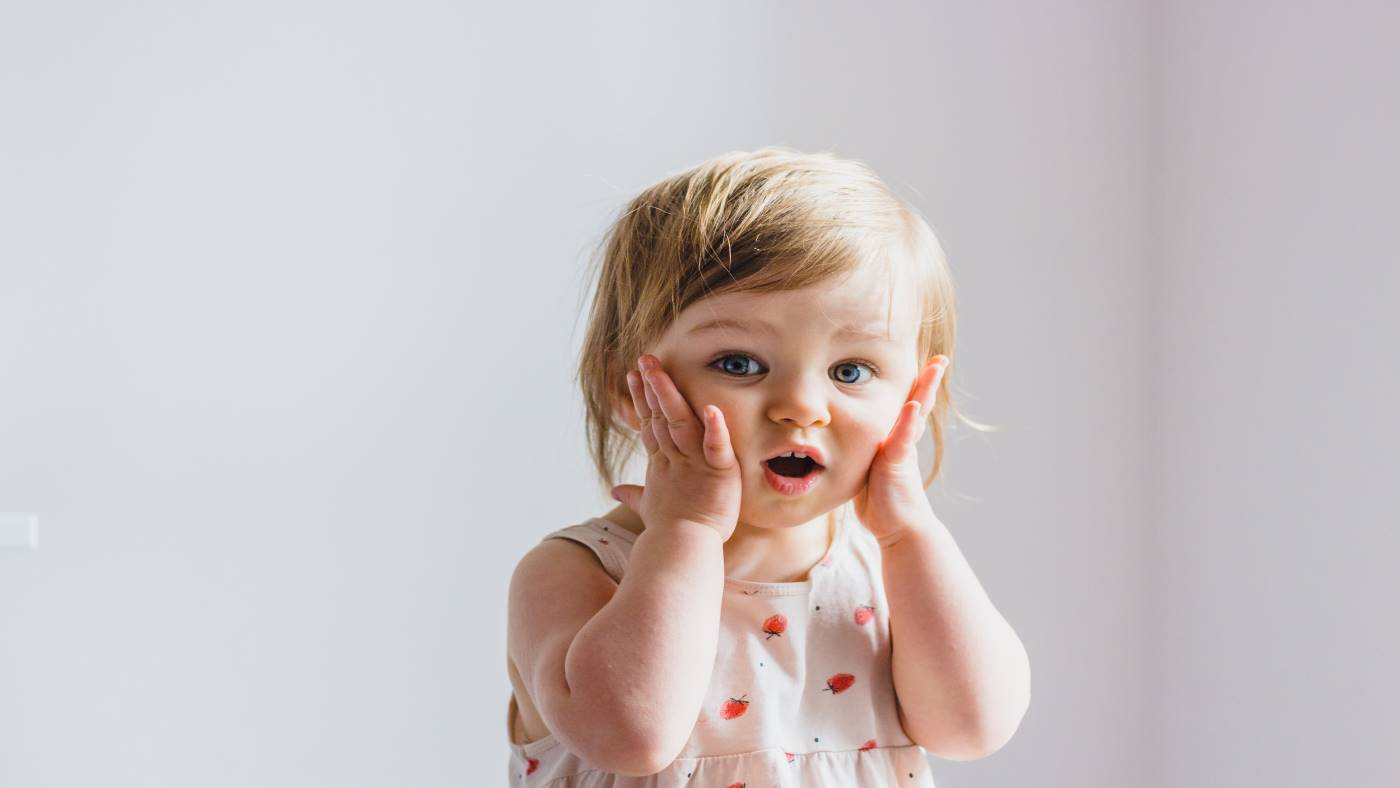What the ****! Why is my toddler swearing and what can I do about it?

You might wonder why your toddler still needs a reminder of the name of a toy but has remembered an expletive having overheard it once. The answer is to do with the link between language, cognitive, social development and emotions – read on to find out more (scroll to the bottom for some tips if your toddler has discovered swearing).
Learning to talk isn’t just about saying words but also understanding when and where to use them.
One important part of learning to communicate is known as pragmatics. Pragmatic development is simply understanding the social aspects of language – so what it’s ok to say where and when.
We need to understand the rules around social context to know if it would be appropriate to comment, and what kind of comment to make, “Please could you move, I can’t see?” or “You make a better door than a window.”[1]
Different words for different contexts
As adults, we’ll usually notice if someone is being sarcastic, and we might have different ways of phrasing what we want to say at work, with close friends or with elderly relatives.
We know some expressions might just not be right in particular situations – your toddler, however, will not learn that for a while yet.
What’s different about this word? A possible reason your toddler swears
While your toddler won’t understand the nuances of language yet, as they become more socially aware they will notice some words seem powerful.
You might have already discovered this if your toddler has been exploring the power of saying, “no,” or “mine!”
Swearing is often linked with strong emotions. It’s likely that if your toddler has heard swearing, this has been expressed with more passion than the name of a new toy!
Your toddler will notice this when they overhear someone swear – they may be curious about the power of these words and interested in trying them out themselves.
What should I do if my toddler swears?
The first thing is to remember your toddler has no idea what the word they’re saying means – but has noticed these words seem important.
- Keep your reaction small
This is hard – if the first time your toddler swears is when you’re alone together at home it can be quite funny; if they swear when you’re out with elderly relatives you might feel pressure to stop them.
Your aim is to remain neutral and just carry on with what you’re doing, if your reaction is big, your toddler might be curious and try the word again to see what happens.
- Give them another word that works
Don’t repeat the word but offer another way of saying what you think your toddler is trying to express.
At this point, they can’t understand the rules around when and who can say certain things – so you can’t explain as you would to an older child.
- Think about your family rules on swearing
If you decide that swearing is not acceptable in your home, then practise using different words to express your emotions or frustration.
It is your home, so you can ask other people not to swear when they visit if that’s what you want.
- If you, or another adult, swears in front of your child – keep calm
You are human and if you forget and swear in front of your toddler – don’t panic! Keep your reaction small, maybe rephrase and show them different words to express how you’re feeling.
If another adult swears, likewise, keep your reaction small and calmly rephrase what they’ve said.
For, now remember your toddler doesn’t understand the different ways we talk and behave in different situations. If they hear swearing, they will try it out to explore the power of these words.
Reference:
[1] Macrory, G. (2021). Learning to talk. The many contexts of children’s language development. Sage.